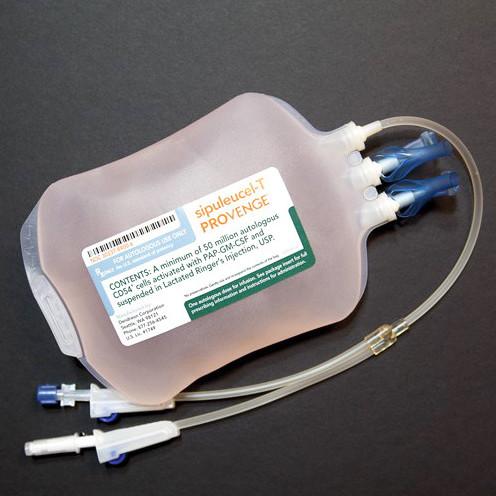Provenge Disease Interactions
There are 2 disease interactions with Provenge (sipuleucel-T).
Sipuleucel-T (applies to Provenge) thromboembolism
Moderate Potential Hazard, Moderate plausibility. Applicable conditions: Thrombotic/Thromboembolic Disorder
The use of sipuleucel-T can cause thromboembolism, including deep venous thrombosis and pulmonary embolism. It is recommended to exercise caution when using this agent in patients with risk factors for thromboembolic events. Close monitoring is recommended.
References
- (2022) "Product Information. Provenge (sipuleucel-T)." Dendreon Corporation
Sipuleucel-T (applies to Provenge) vascular disorder
Moderate Potential Hazard, Moderate plausibility. Applicable conditions: Myocardial Infarction, Cerebral Vascular Disorder
Vascular disorders that include, cerebrovascular and cardiovascular events have occurred with the use of sipuleucel-T. It is recommended to exercise caution when using this agent in patients with risk factors for vascular disorders such as, hemorrhagic and ischemic strokes, and myocardial infarctions. Close monitoring is recommended.
References
- (2022) "Product Information. Provenge (sipuleucel-T)." Dendreon Corporation
Provenge drug interactions
There are 271 drug interactions with Provenge (sipuleucel-T).
More about Provenge (sipuleucel-T)
- Provenge consumer information
- Check interactions
- Compare alternatives
- Pricing & coupons
- Reviews (6)
- Drug images
- Side effects
- Dosage information
- During pregnancy
- FDA approval history
- Drug class: therapeutic vaccines
- En español
Related treatment guides
Drug Interaction Classification
| Highly clinically significant. Avoid combinations; the risk of the interaction outweighs the benefit. | |
| Moderately clinically significant. Usually avoid combinations; use it only under special circumstances. | |
| Minimally clinically significant. Minimize risk; assess risk and consider an alternative drug, take steps to circumvent the interaction risk and/or institute a monitoring plan. | |
| No interaction information available. |
Further information
Always consult your healthcare provider to ensure the information displayed on this page applies to your personal circumstances.


